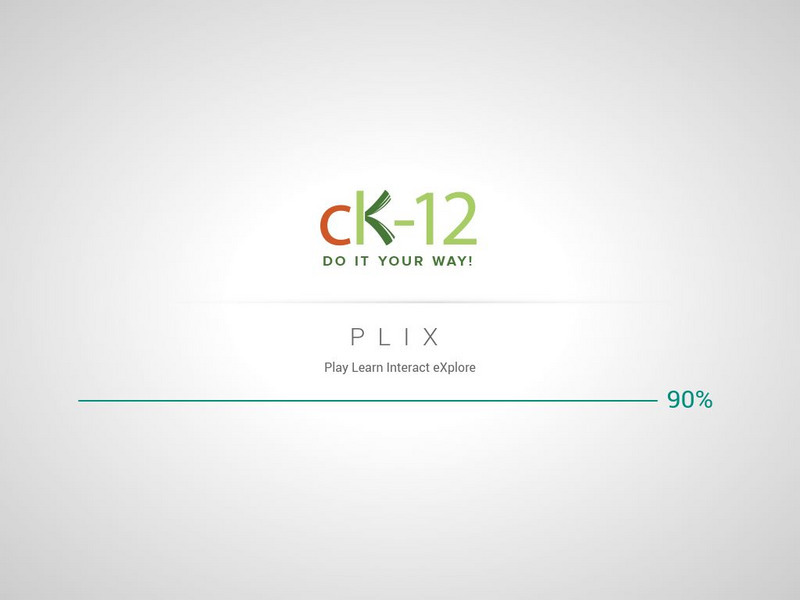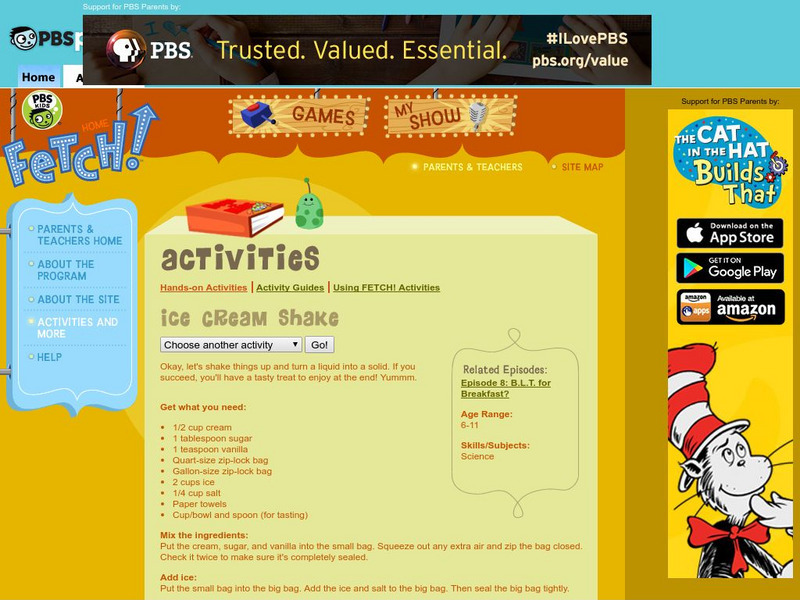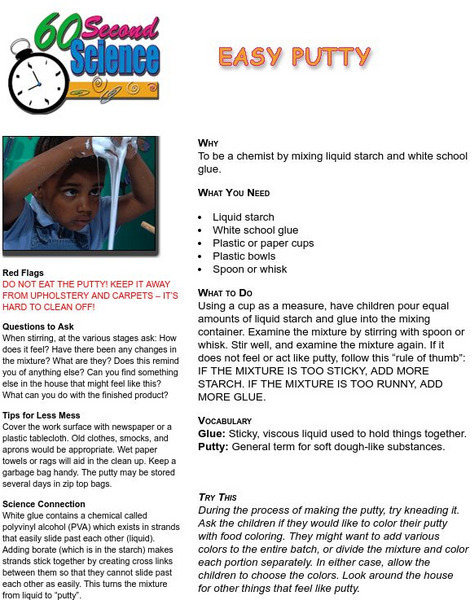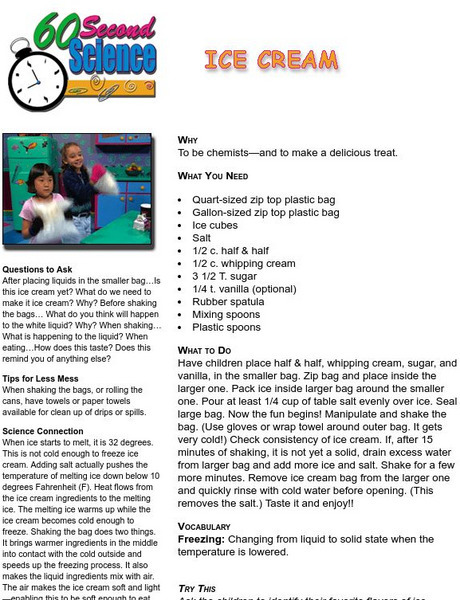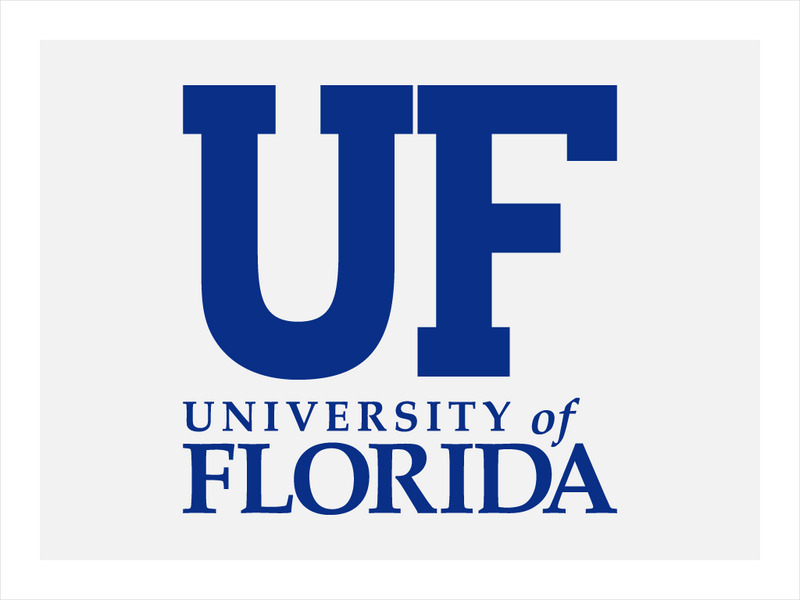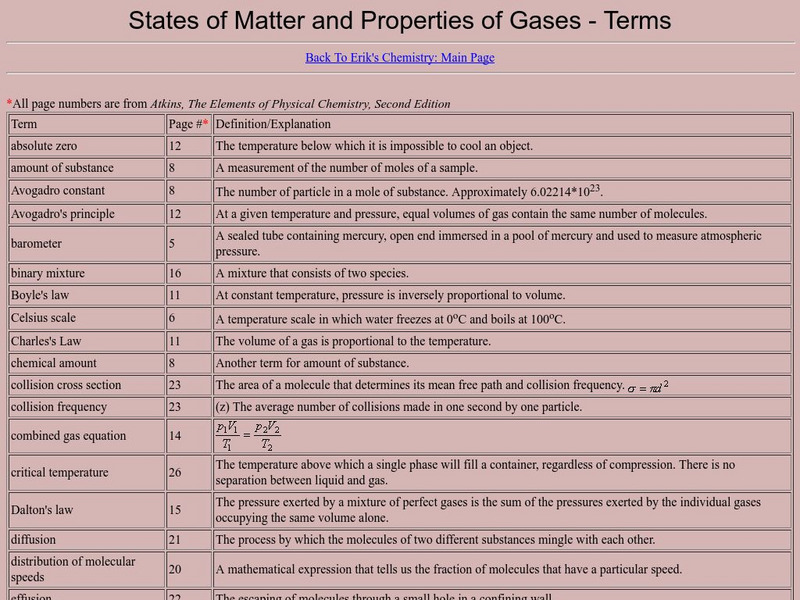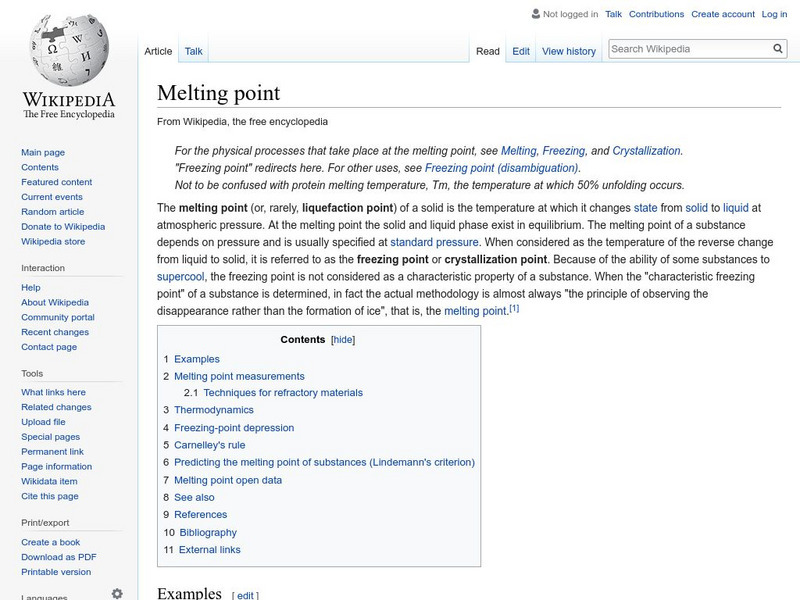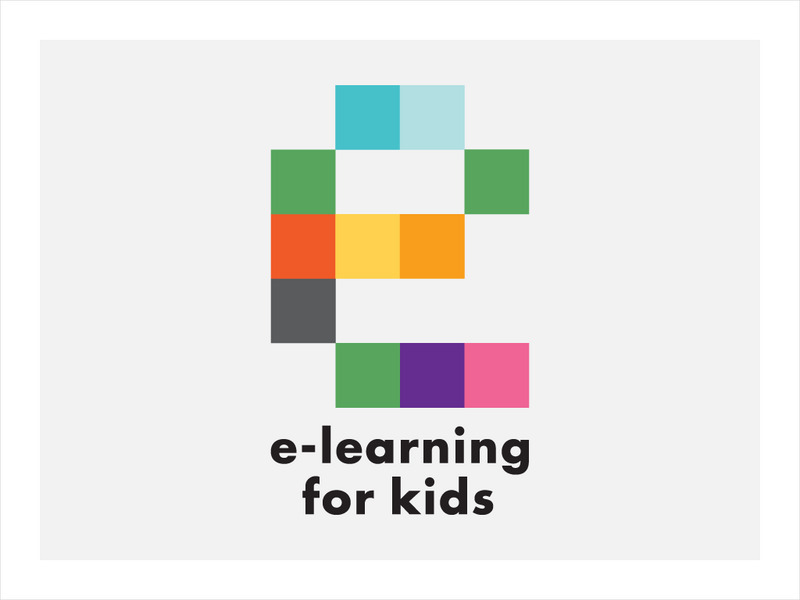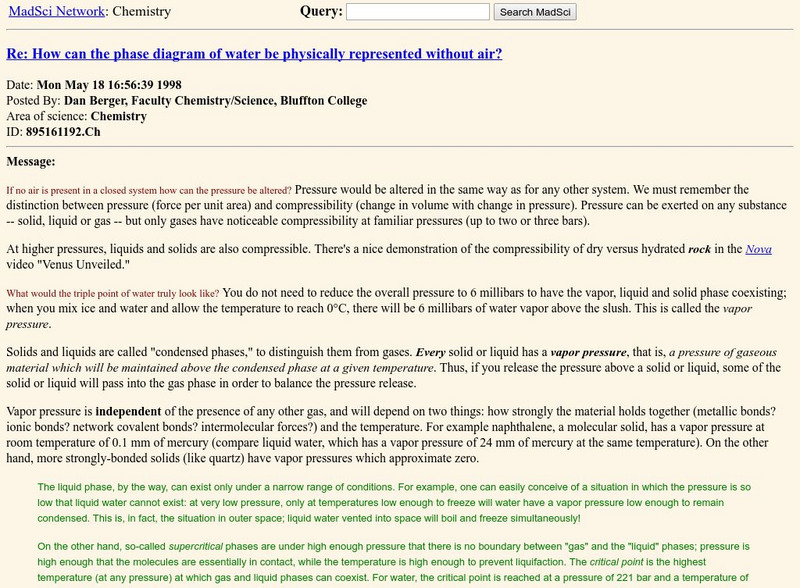Museum of Science
The Atom's Family: Phases of Matter
Help the Phantom choose a material and observe the changes at different temperatures in the molecule chamber. What happens to the elements or molecules as the temperature changes?
CK-12 Foundation
Ck 12: Plix: Structure of Water: Phases of Matter
[Free Registration/Login Required] Explore this interactive by dragging the red dots to match each physical state of water with the correct picture of its molecules.
University of Waterloo (Canada)
The University of Waterloo: The Heating Curve
The heat of vaporization along with several other thermal properties are explained. Sample problems are given. Illustrations.
Children's Museum
The Children's Museum of Indianapolis: Color Changing Milk
Young scholars observe a molecular dance of bursting colors through exploring states of matter and learning that materials can be characterize by how they respond to water.
TeachEngineering
Teach Engineering: Viscous Fluids
Students are introduced to the similarities and differences in the behaviors of elastic solids and viscous fluids. Several types of fluid behaviors are described--Bingham plastic, Newtonian, shear thinning and shear thickening--along...
PBS
Pbs Teachers: Ice Cream Shake
Investigate states of matter while making ice cream. Explore how to turn a liquid into a solid by removing heat energy.
Science and Mathematics Initiative for Learning Enhancement (SMILE)
Smile: Physical and Chemical Changes
This lesson plan focuses on the difference between physical and chemical changes of matter.
PBS
Pbs Teachers: Make Some Zlime
Explore properties of matter by making a slimy substance out of cornstarch and water then noticing how it reacts to pressure.
Curated OER
Matter
A brief site which defines solids, liquids and gases along with a drawing of each.
Other
60 Second Science: Easy Putty
Explore the properties of colloids while making putty. Discover how some mixtures can display properties of both solids and liquids.
Other
60 Second Science: Making Ice Cream
Discover how liquids can change to solids while making ice cream.
Other
Science Alive: Melting Point Simulation
Percy Julian and Josef Pikl used the fact that melting point-the temperature at which a substance changes from a solid to a liquid-is a characteristic property of a substance to prove that the British chemist Robert Robinson could not...
University of Florida
Chem. 2041 Lecture Notes: The Forces Between Molecules
A discussion of the variety of forces which hold molecules together. The relative strengths of these forces for the various states of matter is discussed. The effect of such forces on the boiling points and other phase change...
CK-12 Foundation
Ck 12: Physical Science: Freezing
[Free Registration/Login may be required to access all resource tools.] Explains what happens to matter when it freezes and the definition of freezing point.
Other
States of Matter and Properties of Gases: Terms
A very complete list of terms that are important to the study of gases. This resource is a web archive.
Wikimedia
Wikipedia: Melting Point
Wikipedia offers a brief description of the term, "Melting point," including hyperlinked terms.
E-learning for Kids
E Learning for Kids: Science: Bermuda Triangle: What Happens When an Object Gains or Loses Heat?
Learn about states of matter on a flight tour over the Atlantic Ocean.
Science Education Resource Center at Carleton College
Serc: Polymers & Plastics: Classification & Models
Students will use their prior knowledge about changes of matter including physical and chemical changes to examine and categorize various types of plastics (polymers). They will identify how their chemical properties allow them to have...
American Chemical Society
Middle School Chemistry: Changing State Freezing
Discover how freezing works, when the change of state moves from liquid to solid.
E-learning for Kids
E Learning for Kids: Science: North Sea: Denmark: What Happens When Materials Are Heated or Cooled?
Did you know that water has different states? Learn all about it with Boris in Copenhagen.
University of Notre Dame
Und: Properties of a Pure Substance [Pdf]
Often we find that different phases of pure substances can exist in equilibrium with one another. Let us consider an important gedankenexperiment (Latin-German for "thought experiment") in which we boil water. Ordinary water boiling is...
Museum of Science
The Atom's Family: Mighty Molecules
In this activity, students construct models of molecules using marshmallows and gum drops.
MadSci Network
The Mad Scientist Network: Chemistry
The question: "What would the triple point of water truly look like?" is discussed and explained. The phases of matter are described.
Ducksters
Ducksters: Kids Science: Melting and Boiling
Kid's learn about the science of melting and boiling. How matter changes state from solids to liquids to gases.



